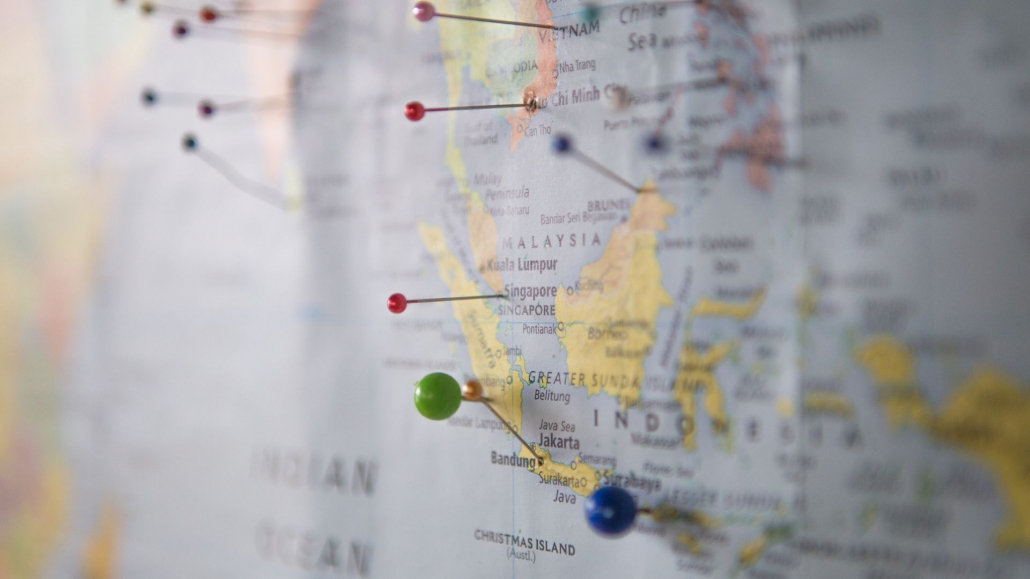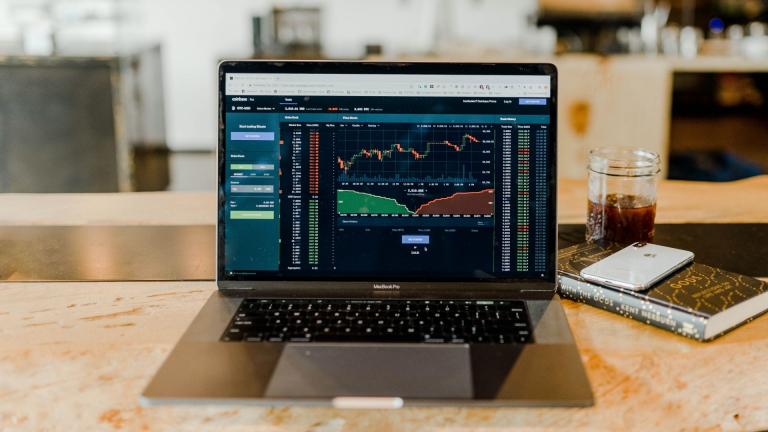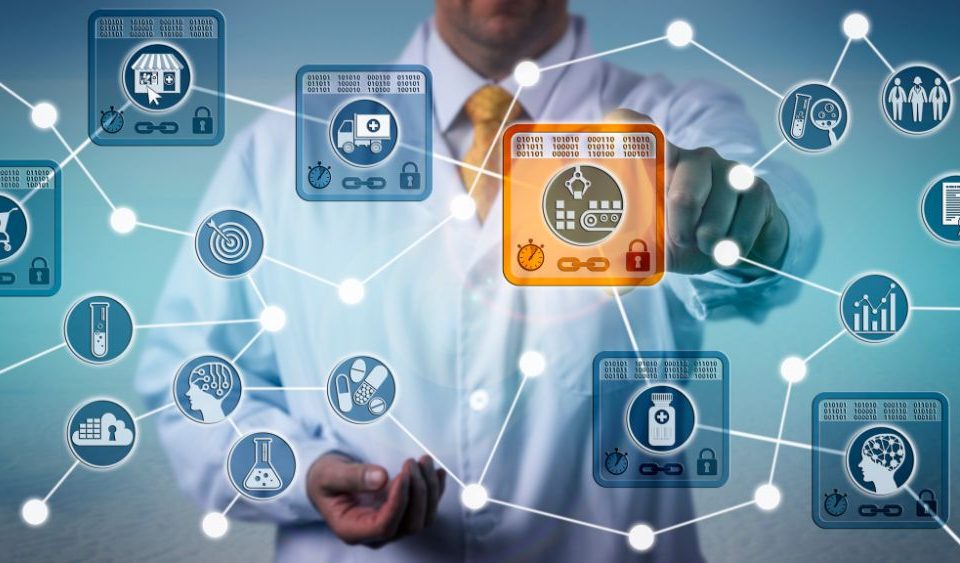Solving challenges in developing countries with blockchain technology

Blockchain technology is a buzzword in the tech industry. It’s used to solve many of today’s problems, like making payments more accessible and more secure than ever before. But blockchain has many other applications than enabling transactions between two parties.
Blockchain can make life easier for people living in developing countries. It can provide them with access to new opportunities that might not have been possible before via smartphone or laptop.
For example, citizens of Venezuela are struggling with hyperinflation. Using blockchain, they can buy goods online from abroad. They can use cryptocurrency instead of their local currency, which will likely depreciate even further over time.
This blog post will explore how blockchain technology could make an impact on developing nations’ populations.
What is Blockchain Technology?
Blockchain technology is a decentralized ledger of transactions. It is secure, transparent, and cannot be changed.
Everyone in the blockchain network contributes to the securing and recording of new transactions. These are incorporated into blocks if they meet certain criteria. You can rewind the transaction from being included as a block if there was malicious intent.
The ledger of transactions is stored on every computer or node connected to the network. All blocks are linked to prior blocks in the chain, ensuring that nobody can alter them once recorded. Subsequent changes to any individual block are immediately reflected across all other nodes. This is due to the nature of blockchain technology’s decentralized architecture.
One of the most promising aspects of blockchain technology is its ability to help the recording of transactions. It can also create new digital tokens without trusting a third party or central authority (i.e., banks, governments, venture capitals).
These ramifications have massive potential for streamlining processes in developing countries. In such countries, time-consuming, manual, and centralized systems are often unreliable.
There are myriad benefits to using blockchain technology in developing countries. Here are a few of the most promising.
Reduced transaction costs
The lack of a central authority to regulate transactions will inevitably result in a reduction of transaction costs. It can also significantly reduce the time required for cross-border payments, international value transfers. Without human greed in the way, it will be harder to take advantage of people.
Improved financial inclusion
The emergence of crypto ATMs is a testament to the disruptive nature of blockchain technology.
Access to formal financial services remains limited for many in developing countries. It is much worse in remote areas or conflict zones where conventional banking facilities are scarce. They could be this rare due to conflicts, poor infrastructure, or remote locations, but the result remains the same.
Crypto ATMs can act as a substitute for traditional banking hubs, reducing the cost of transacting in fiat currencies.
Blockchain technology also supports identity management solutions. Such solutions can enable secure digital identification for citizens across the developing world.
Research suggests that greater financial inclusion is associated with positive economic growth.
An increase in financial inclusion may lead to reducing economic, social, and political inequality. This is because the growth of national economies can lead to improvements in living standards for more people.
Blockchain technology also creates new opportunities for cross-border transactions, benefiting citizens of developing countries by eliminating geographical distances.
Overcoming institutional weaknesses
Institutional weaknesses often lead to high rates of crime, corruption, and slow economic growth.
Blockchain technology can reduce these issues by helping deliver public services more efficiently. For example, through the use of smart contracts, it is possible to track delivery, making it more difficult for fraudsters to manipulate information.
The use of smart contracts also means that if disbursements are not made when they should be, private individuals or organizations can be permitted to deliver the service directly.
Challenges faced by the healthcare system in a developing country and how blockchain could help
Due to a lack of resources, institutions in developing countries find it difficult to meet citizens’ needs for public services. Examples include healthcare providers and financial services. Here the blockchain technology has great potential to improve lives.
For example, in 2013, Nigeria’s Ministry of Health published the results of research. It estimated that it needed at least $4 billion annually to provide adequate healthcare for its 168 million citizens. Yet government budget allocations for health fell by almost 50% in real terms from 2011 to 2014.
The Buhari government is exploring how they can use blockchain to improve healthcare. This could include using ledger technology to record medical transactions. It can also be used to track medical supplies such as drugs, vaccines, and blood.
Nigeria is a country with inadequate healthcare infrastructure and low levels of transparency. Here, blockchain technology has the potential to transform how healthcare is delivered. But the costs associated with developing a working prototype will be considerable. It is equivalent to at least 30 million USD (Nigeria’s entire budget for healthcare in 2017).
Blockchain development in developing countries will need funding and support from international donors, which is currently absent. The global community will need to reach an agreement on how we can finance such decentralized systems. If this were to happen, many developing economies would likely benefit significantly, predominantly from improved healthcare and financial solutions.
One of the biggest challenges facing developing countries is a general lack of transparency. This needs to be addressed.
Blockchain technology can help address corruption at all levels, as it creates a tamper-proof system. That will increase trust when delivering essential services. These key services could be healthcare, education, and identity cards, for example.
It will take time.
The benefits of using blockchain for voting systems
The benefits of using blockchain for voting systems in developing countries are tremendous, to say the least. Not only will it help improve transparency and efficiency, but it can also increase trust during the voting process.
According to a United Nations Development Programme (UNDP) report, it cost $26,000 to stage the country’s 2011 elections. This doesn’t include another $2.5 million. This was paid in transport costs to get more than 200,000 voters from their home villages to the voting locations. In total, $28.5 million, of which the government provided $18 million–or more than 63%– was spent to hold a single election.
This money could be have been used to build an online voting system using blockchain technology. We would have reduced the costs incurred from elections to a fraction of what we currently see.
A report on the global state of elections by the IFES was recently released. It was revealed that out of the $1.5 billion spent, $53 million was used to create new voter registries, more than double the amount from the previous year!
The report also pointed out one more thing. The cost of updating and replacing voter registration systems has been increasing in recent years, which is why countries are building more automated solutions to fix issues in voter registration.
A simplified system for elections using blockchain technology can help reduce election costs by at least 60%. It can be even more as it can increase transparency, decrease the cost of voting, increase speed, and many more benefits.
Blockchain technology is easy to use for everyone who wishes to participate in an election. Voters could be issued a private key using any public Ethereum wallet addresses or other wallets supporting ERC20 tokens. Each voter is then able to vote via the blockchain by creating a transaction using the selected wallet.
Blockchain potential in supply chain management or agriculture production
In Agriculture, blockchain can help by tracking products from seed to shelf, ensuring that customers consume the freshest product available. It also makes it easier to detect any problems in the supply chain. For example, you could scan a container of beans upon arrival at the port on a smartphone via an app that would determine its contents and value.
Taking this data and storing it on the blockchain helps by allowing for more transparency and efficiency in the supply chain.
Conclusion
Blockchain is the technology that’s driving Bitcoin and other cryptocurrencies. It has a lot of potentials to solve some critical problems in our developing nations. It can increase financial inclusion or reduce fraud as it pertains to voting systems. Some companies are already using this for supply chain management and agriculture production, so we can only imagine what else will come from blockchain in the future!
To learn more about blockchain technology, and join the revolution, visit us at Mangrovia Blockchain Solutions. We love to discuss blockchain technology, and we might even be able to fill a need for your company.
We are a blockchain software house, providing consulting, development, and support for blockchain solutions. All in one package to make your business run seamlessly.
If this sounds like something you need, don’t hesitate to contact us!

Contacts:
+39 02 45391390




